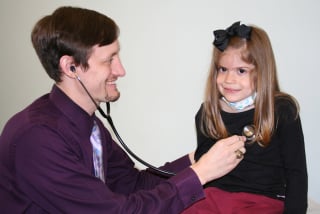Greenwood Genetic Center (www.GGC.org) announces its collaboration with FDNA (www.FDNA.com). The collaboration
will use FDNA’s facial analysis and artificial intelligence technology to analyze Greenwood Genetic Center (GGC) patient data in a de-identified way,
aiding in new discoveries of genetically-based rare diseases and helping to find long-awaited answers for undiagnosed patients.
The collaboration involves the analysis of nearly 80,000 cases from GGC to further FDNA’s database strength on known diagnoses and gain insight into potential
answers for patients without a diagnosis. GGC plans to analyze thousands of undiagnosed cases using FDNA’s next generation phenotyping technology:
Face2Gene. The analysis of these cases is expected to produce actionable insights for undiagnosed patients, recognition of new syndrome-related clinical
phenotypes, and achieve numerous other rare disease discoveries that will advance research globally. These results will help clinicians find answers
for patients who have yet to find a diagnosis, most of whom are children exhibiting rare disease symptoms.
“The GGC clinical team has already received the first insights from FDNA,” said Hannah Warren, MS, CGC,
Clinical Genetic Counselor at Greenwood Genetic Center. “There are dozens of high priority, undiagnosed cases that have been flagged by Face2Gene due
to their statistically significant facial analysis insights. These new insights may help find a diagnosis for patients who have been searching for
answers for much too long.”
The GGC-FDNA collaboration is critical to the future of rare disease research. One in 10 people worldwide suffers from a rare genetic disease. In the US
alone there are 30 million people suffering from rare diseases—more than double the number of patients living with a cancer diagnosis. In addition
to providing GGC with insights on undiagnosed cases, FDNA also uses the analysis of patient data in Face2Gene to highlight likely genetic variations
in the patient’s genetics for the doctor to consider as they search for the answer among thousands of possibilities.
“Because of the complexity of the human genome and the sheer number of rare syndromes, geneticists have been, up to now, at an extreme disadvantage in
coming to a diagnosis,” said Dekel Gelbman, CEO of FDNA. “Combining AI with big data is giving medical professionals the help they need to provide
hope to these patients.”
Founded in 2011, FDNA is committed to helping clinicians, labs and researchers diagnose, treat and create therapies for rare diseases. FDNA’s Face2Gene
suite of applications helps to quickly evaluate patients’ clinical signs through artificial intelligence and facial analysis. With a comprehensive
database of more than 10,000 rare disease syndromes, this technology is supporting healthcare providers to improve the speed and accuracy of a diagnosis
for rare disease patients.
About FDNA and Face2Gene FDNA is the developer of Face2Gene, a clinical suite of phenotyping applications that facilitates comprehensive and precise genetic evaluations. Face2Gene uses facial analysis, deep learning and artificial intelligence to transform big data into actionable genomic insights to improve and accelerate diagnostics and therapeutics. With the world’s largest network of clinicians, labs and researchers creating one of the fastest growing and most comprehensive genomic databases, FDNA is changing the lives of rare disease patients. For more information, visit www.FDNA.com.
